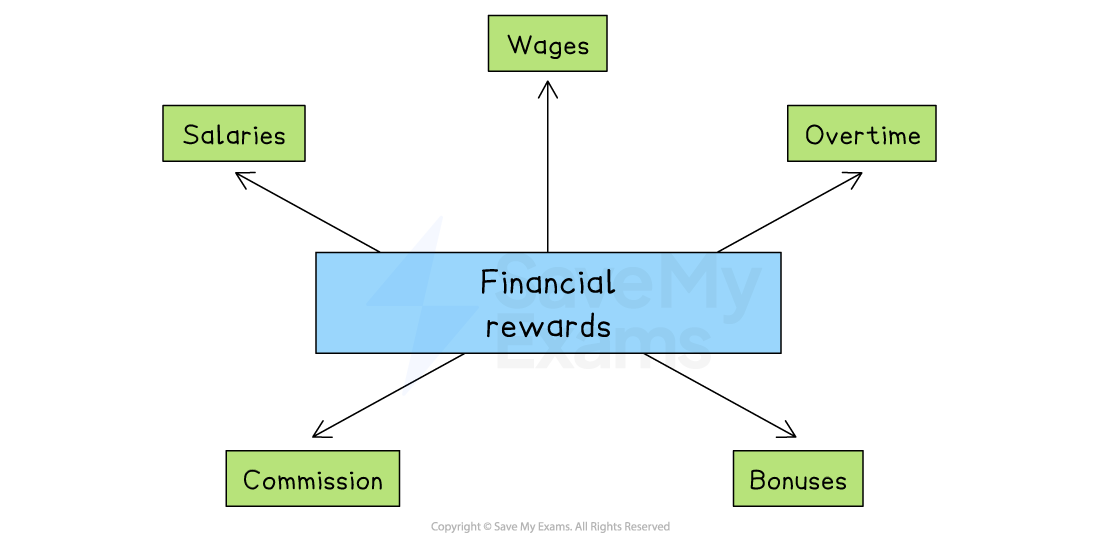Payment Systems (SQA National 5 Business Management): Revision Note
Exam code: X810 75
Financial rewards for work
Financial rewards are payments made to employees in return for their work
They are an important part of motivation, helping to attract, retain and reward employees
Examples of financial rewards

1. Salaries
A salary is a fixed amount of money paid to an employee each year, usually split into monthly payments
It does not normally change with the number of hours worked
Salaries are common for managers, professionals, and full-time office staff.
E.g. A marketing manager earns a salary of £36,000 per year, paid monthly (£3,000 per month)
2. Wages
Wages are paid based on the amount of work done, usually weekly.
They are common in jobs where hours or output can change from week to week, such as retail or construction
Wages can be paid as a time rate or as a piece rate
Time rate | Piece rate |
|---|---|
|
|
3. Overtime pay
Overtime pay is an extra payment for hours worked beyond normal working time
Overtime is often paid at a higher rate, such as 'time and a half' or 'double time'
E.g. A worker earning £10 per hour receives £15 per hour for overtime hours completed
Overtime encourages flexibility when demand is high and rewards employees for their extra effort
4. Commission
Commission is a payment based on the value or number of sales an employee makes
Employees may earn a basic wage plus commission, motivating them to sell more
It is common in retail, estate agency and car sales
E.g. A salesperson earns 5% commission on every £1,000 sold, plus a basic wage
5. Bonuses
A bonus is an extra payment or reward for good performance
It may be given to individuals, teams or all staff if company targets are achieved
Bonuses are used to reward hard work and encourage continued effort
E.g. An employee receives a £500 bonus for exceeding their sales target in a particular month
Examiner Tips and Tricks
Students often think payment systems only differ by how often people are paid. In fact, they’re designed to motivate staff - for example, bonuses reward effort, while salaries offer stability

Unlock more, it's free!
Was this revision note helpful?
